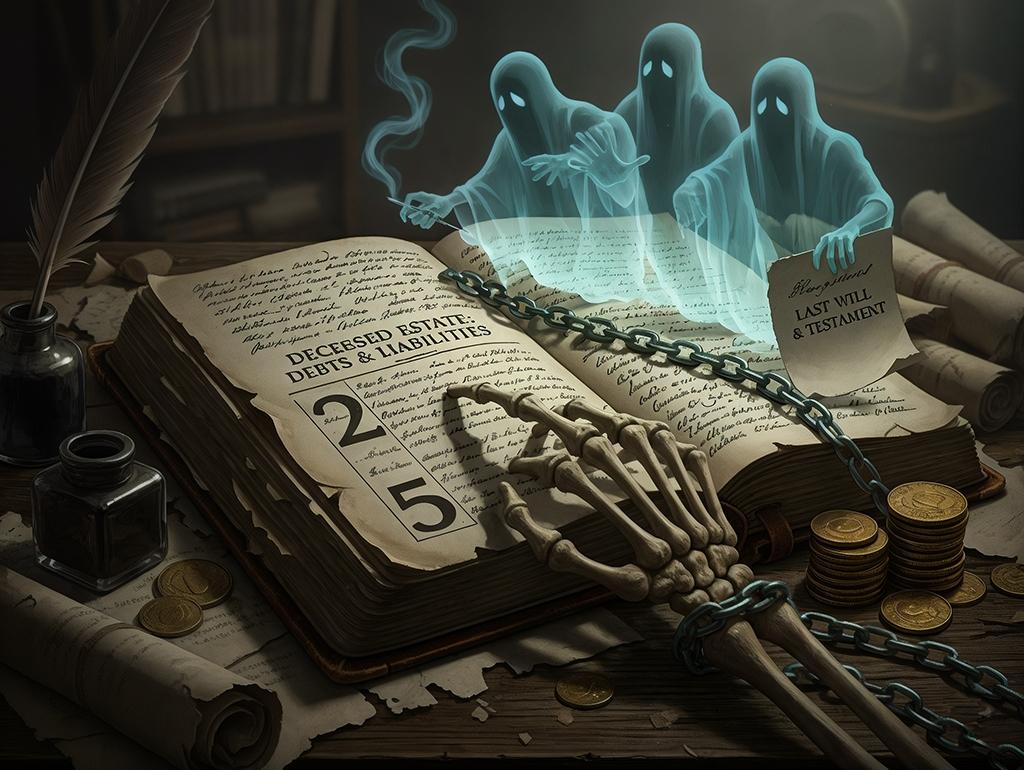Who is responsible for my debts when I die?

Who is responsible for my debts when I die?
8 Nov 2025Who Is Responsible for My Debts When I Die? A Complete Guide to Death and Debt
When someone passes away, one of the most common questions families ask is: "Who is responsible for their debts?"
It's a confusing and emotional topic, especially for families on the NSW-VIC border, where laws can differ depending on which state applies.
As a Wills and Estates law firm in Albury, we help families navigate both New South Wales and Victorian estate laws. Below is a clear, practical guide to understanding how debt is handled after death—and who may (or may not) be responsible.
Do Your Debts Disappear When You Die?
Not exactly.
Most debts do not automatically disappear, but they also do not usually pass on to family members.
Instead, debts must be paid from the deceased's estate, which includes:
- Bank accounts
- Property
- Vehicles
- Investments
- Personal belongings
Only after debts and liabilities are paid can the remaining assets be distributed to beneficiaries.
Who Is Responsible for Paying the Debts?
The Estate Pays First
Before any inheritance is distributed, the executor (if there is a Will) or administrator (no Will) is required to:
- Identify all debts
- Notify creditors
- Pay debts from estate assets
This process occurs in both NSW and Victoria, though the paperwork and court processes (Probate or Letters of Administration) differ slightly.
Are Family Members Responsible for the Debt?
In most cases: No.
Family members are not personally responsible for the deceased’s debts unless:
They were a joint account holder
For example:
- Joint mortgages
- Joint credit cards
- Joint loans
- Joint debt survives the death of one borrower.
They were a guarantor
If someone guaranteed the deceased’s loan, they can be pursued for the outstanding balance.
What Happens to Specific Types of Debt?
Credit Cards
Unsecured credit card debt is paid from the estate.
If the estate has no money, the debt is usually written off.
Home Loans (Mortgages)
A mortgage does not disappear.
The options may include:
The executor selling the property and paying the loan
- A beneficiary refinancing the loan
- A joint borrower continuing repayments
Personal Loans
These must be repaid from the estate, unless there is a guarantor.
Car Loans
The lender may repossess the vehicle or the estate may pay off the remaining loan.
Medical Bills & Aged Care Fees
These are treated like other unsecured debts and are paid from the estate.
Tax Debt
The Australian Tax Office can claim unpaid tax from the estate.
What If the Estate Has More Debt Than Assets?
If debts exceed assets, the estate is insolvent.
In this case:
- Creditors are paid in a strict order
- Beneficiaries receive nothing
- Family members do not inherit debt
Executors must be very careful when dealing with insolvent estates and should seek legal advice before paying any creditors.
Differences Between NSW and Victoria
Although the principles are similar, key differences include:
NSW
- Probate is managed by the Supreme Court of NSW
- The Probate and Administration Act 1898 (NSW) applies
- Some timelines for creditor notices differ
Victoria
- Probate is managed by the Supreme Court of Victoria
- The Administration and Probate Act 1958 (VIC) applies
Families in Albury–Wodonga often have assets or debts spread across both states, so advice from a cross-border estate lawyer is essential.
Can You Protect Your Family From Debt Issues?
Yes—there are simple legal steps you can take:
- Prepare a valid, up-to-date Will
- Keep clear records of debts and assets
- Structure loans properly (avoid unnecessary joint debt)
- Seek advice when acting as guarantor
- Review your estate plan after major life events
A well-drafted estate plan helps protect loved ones and prevents unnecessary financial stress.
Need Help With Estate Planning or Deceased Estates in Albury?
As a law firm experienced in Wills & Estates across both NSW and Victoria, we help clients:
- Draft Wills
- Set up estate plans
- Apply for Probate or Letters of Administration
- Administer estates with debt
- Manage cross-border estate issues
If you need guidance about debts after death or estate planning, we’re here to help.
8 Nov 2025
Similar posts by tag
WillRecent Posts

Who is responsible for my debts when I die? 575

New AML/CTF Laws Australia 657

Australia's New 5% Home Deposit Scheme Explained 2284

Navigating NSW Probate in Albury-Wodonga 933

Decoding Australian Property Special Conditions 945

Dying without a Will in NSW 1020

Compulsory Disclosure Laws for Queensland property 622

What happens to your will if you suffer dementia? 546

Laws regulating powers of attorney in Australia 788